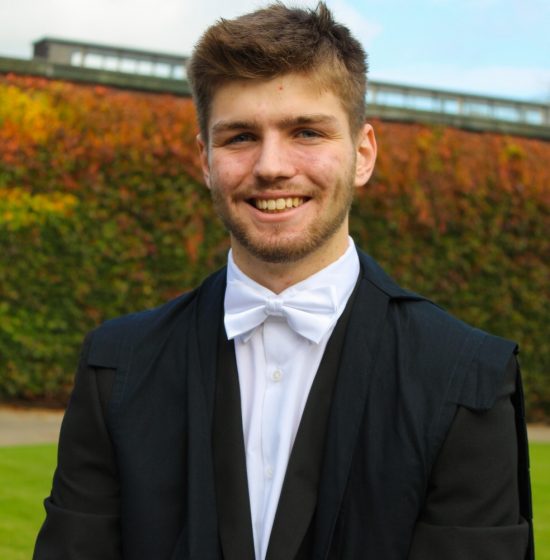
Hello, my name is Alex, but everyone calls me Planty. I am a fresher studying Materials Science at St Catherine’s College Oxford. Materials Science is one of those degrees you have probably never heard of, but for me it was a great fit. At school I really enjoyed the physical sciences and the problem solving that came with maths, but pure engineering was not the right choice neither was studying a pure science. Materials is the perfect marriage of Physics, Chemistry and Engineering, you don’t have to lose any of the subjects you love!
A typical week for me consists of roughly 10 lectures, with each lecture series being about eight lectures long such that in a term, you manage to get through a fair range of topics. On top of the lectures, I have tutorials, labs, and classes. In an average week, you will get at least one Materials tutorial and one maths tutorial both having similar formats where a problem sheet related to the lectures must be completed prior, taking about 5-8 hours to complete. The classes are either computing, where you will learn some basics coding in Matlab or Crystallography, where you solve problems relating to the fundamental concept of studying crystals by experimental techniques such as diffraction. Labs are every other week and take place on Thursday and Friday afternoon – they put the theory you have learnt to test. For each lab you must present a short write up of the lab in your notebook discussing your finding and the like.
As Materials Science is not a subject you come across in your studies at school the interview experience is based around the physics, chemistry, and maths you have studied. Make sure you are really on top of your game in these subjects. Unless you spoke about a particular topic on your personal statement it is unlikely, they will ask you about a topic which has not got links back to your education prior, so do not be afraid if you think you do not know a lot about the subject, the interviewers care about how you think not what you know. You must show them how you think, talk out loud, ask for a pen and paper to write down your workings down (I would however bring my own!), question them to clarify something if you are unsure. At some stage in one of our interviews you will undoubtedly struggle, stay calm, work through the problems logically in a clear manner, start from what you know is true and build up your answer from there. They are daunting but try your best to treat them as a learning experience rather than an interview.
Almost every single Materials Science applicant has read ‘Stuff Matters’ by Mark Miodownik (who actually studied at my college!) and mentions it in their personal statement. It is by no means an essential read but gives a really good background to the subject; I recommend if you do write about it to choose a chapter of specific interest to you and do some more research about it, see what you can find out and see how that links back to what you have done at school. Make sure your personal statement shows your interest in the subject and isn’t just a list of the books you’ve read – on that note if you say you’ve read a book, make sure you have.
When you do end up studying Materials Science, be prepared for all your engineering friends to tell you it is the ‘Btec’ version of their subject but remember, you could not have any engineering without the suitable material in the first place, hence Materials is the superior course.The technological advancements to come are limited by the capabilities of materials today, to me this is why studying Materials is really exciting and if this prospect excites you too, you will thoroughly enjoy your time.
